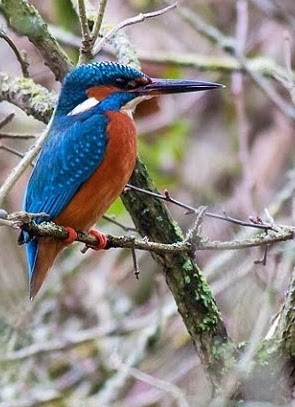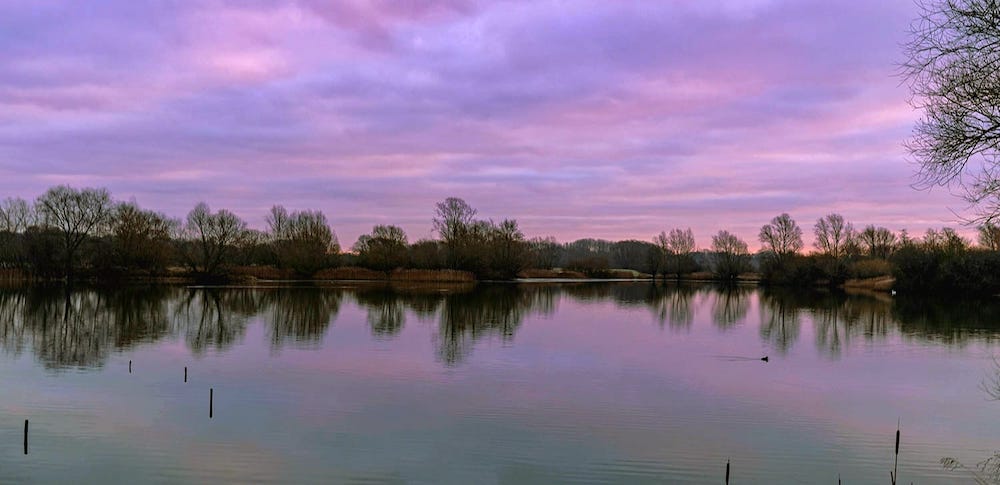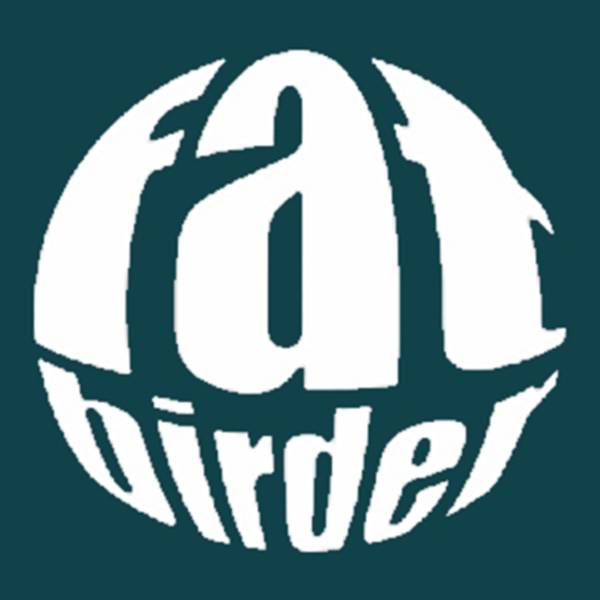Buckinghamshire

The recording area of Buckinghamshire (area 24 in the Watsonian system) is co-terminus with the ceremonial county of Buckinghamshire (abbreviation Bucks) in southeastern England, one of the so-called ‘home counties’. It is bordered by Northamptonshire to the north, Bedfordshire to the northeast, Hertfordshire to the east, Greater London to the southeast, Berkshire to the south, and Oxfordshire to the west. The largest settlement is the city of Milton Keynes, followed by the county town of Aylesbury and then High Wycombe. The county has an area of just over 1,800 km2 (700 square miles) and has a population of c.850,000 people, more than a quarter of whom live in Milton Keynes. The historic county had slightly different borders, and included the town of Slough.
The Chiltern Hills, an Area of Outstanding Natural Beauty, occupy the south of the county and contain its highest point, Haddington Hill at 267m (876 ft). The Chilterns are the source of the River Ouzel, which flows across the lowland Vale of Aylesbury in the north of the county and through Milton Keynes before meeting the River Great Ouse at Newport Pagnell. The Thames forms part of the county’s southern boundary. The main branch of the Grand Union Canal passes through the county as do its arms to Slough and Aylesbury, as well as the disused arms to Wendover and Buckingham. The canal has been incorporated into the landscaping of Milton Keynes. There are quarries from extracting chalk and clay, and gravel and sand in the river valleys; several of which are now flooded, and have become nature reserves.
Birding Buckinghamshire
From the Thames Valley in the south to the River Ouse in the north, Buckinghamshire contains a wealth of interesting habitats, each with its characteristic bird community. Significant habitats include the Chiltern escarpment, the Chiltern Beech woods and the Vale of Aylesbury. Important bird sites within the county include Ashridge Forest, Black Park, Calvert Jubilee Brick Pit, College Lake, Great Linford Lakes, Little Marlow Gravel Pit, Steps Hill, Stoke Common, Wendover Woods, Weston Turville Reservoir and Willen Lake. The Berks, Bucks and Oxen Naturalist Society (BBONT) manage several of these sites.
The county can boast some rare breeding birds as well as providing important wintering areas for a number of species. Birds which breed in the county include Barn Owl, Crossbill, Curlew, Firecrest, Hawfinch, Hobby, Little Ringed Plover, Long-eared Owl and Nightingale, while the wonderful song of the Woodlark can again be heard at a few sites. Buzzards and Red Kites can also be regularly seen along parts of the Chiltern escarpment. Other species such as Nightjar, Snipe and Stonechat, breed occasionally.

Linford Lakes Nature Reserve – ©Ashley Beolens
In winter, wetland sites such as Willen Lake and Linford Pits in the north, Calvert Brick Pits, College Lake and Weston Turville Reservoir in the middle of the county and Little Marlow Gravel Pit in the south play host to many wildfowl that includes good numbers of Goosander at preferred sites and small numbers of Smew at others. In the Vale of Aylesbury large flocks of Golden Plover and Lapwing are annual. Large numbers of Gulls gather at rubbish tips and at roost sites in the county, bringing occasional records of scarcer species such as Iceland and Glaucous Gulls.
Waders are most often reported at the various water sites mentioned above, with the majority of records during the spring and autumn migration periods. Species such as Whimbrel, Greenshank and Ruff are annual but with many other wader species reported each year. Perhaps the most important migration site for passerines is Steps Hill, where birds such as Ring Ouzel are annual and significant movements of other commoner migrant birds are often noted.
The Buckinghamshire Bird Club is the major ornithological organisation in the county and organises evening meetings, field trips, conferences, surveys and publishes both a monthly newsletter and a county annual report. Apart from the clubs main function to advance the education of the public in the knowledge and understanding of ornithology in Buckinghamshire, the club also collects and provides data to planning and conservation bodies.
-
5 Top Birding Spots in Milton Keynes
WebpageMilton Keynes may not seem the best urban birding location in the UK, but we have our fair share of interesting places for the birds (sadly many have declined over the years through neglect or pressure from the growing town). So here are my 5 top birding spots in Milton Keynes, a few details about local wildlife hotspots to be found in (and around) Milton Keynes... -
Brickhill Woods
InformationSatellite ViewThese woodlands are most famed for holding the only sizeable colony of Lady Amhurst's pheasants in the UK. Many visits may be necessary to turn one up as they love to skulk amongst the dense Rhododendrons. The woods hold all the usual pine-woodland species… including Goshawk that can sometimes be seen displaying over Back wood in early Spring. -
Linford Lakes
WebpageSatellite ViewThese lakes (formed by Gravel workings) are not all open to free public access, there are some used for fishing, others still working and still others private. The lakes are known for a long-eared owl roost and nesting lesser-spotted woodpecker and have turned up some great passing vagrants. -
Willen Lake
WebpageSatellite ViewA reserve has been created in what is a large public area and yet attracts some very good birds including, especially, rarer waders on passage around the small island.
-
Mike Wallen
15 Bennett Lane, Rowsham, HP22 4QU
07976560040
-
Number of bird species: 307
County Bird - Pied Wagtail Motacilla alba
-
Checklist
Checklist PDFAvibase
-
Birds Around Milton Keynes
| By Bob Tunnicliffe & Trisha Tunnicliffe | WR Tunnicliffe | 1997 | Edition 2 | Paperback | 70 pages, B/w illustrations | Out of Print | ISBN: 9780953228102 Buy this book from NHBS.com -
Buckinghamshire Bird Report 1996
| By Buckinghamshire Bird Club | 1997 | Paperback | 72 pages, b/w photos, illustrations, tables | ISBN: 9780907823292 Buy this book from NHBS.com -
The Birds of Buckinghamshire
| By David Ferguson | Buckinghamshire Bird Club | 2012 | Hardback | 392 pages, 255 colour photos, colour illustrations, colour distribution maps, tables | ISBN: 9780907823940 Buy this book from NHBS.com -
Where to Watch Birds in Bedfordshire, Berkshire, Buckinghamshire, Hertfordshire & Oxfordshire
| By Brian Clews, Andrew Herget & Paul Trodd | Christopher Helm | 2002 | Paperback | 320 pages, 69 maps, 30 line drawings | Out of Print | ISBN: 9780713640021 Buy this book from NHBS.com
-
Amersham Birdwatching Club
WebsiteWelcome to the Amersham Birdwatching Club Website - Our aim is to share and foster an interest in and enjoyment of birds and their environment. We will be glad to see you at any of our meetings. -
BBONT Wildlife Trust
WebsiteBBONT is one of a network of 47 Wildlife Trusts across the UK which work to protect wildlife in town and country. With more than 2200 nature reserves in their care The Wildlife Trusts are dedicated to achieving a UK richer in wildlife. -
Bucks Bird Club
WebsiteRoger Warren, Bakery Lodge, Skirmett, Henley-on-Thames, Oxon RG9 6TD 01491 638544The Buckinghamshire Bird Club was formed in 1981 and was granted charity status in 1989. It was formed with the objective of bringing together under one organisation all those interested in birds in the county. Previously, no single natural history organisation effectively covered the whole of Buckinghamshire. Now, all birdwatchers from the complete novice to the skilled ornithologist are able to enrich their interest and encourage nature conservation by joining the Buckinghamshire Bird Club. -
Bucks Owl Raptor Group
WebsiteThe Bucks Owl Raptor Group exists to further the interests of Owl and Kestrel conservation within Buckinghamshire. We do this through recording, monitoring, educational work, practical conservation and provision of advice. We work closely with other birding groups and under the guidance of the British Trust for Ornithology. We are a group of volunteers based in Aylesbury and have been operating for over 10 years. We have boxes across Buckinghamshire which we oversee in partnership with landowners. -
Milton Keynes Natural History Society
WebsiteWelcome to the Milton Keynes Natural History Society web pages. We are a friendly group and have been active in Milton Keynes since 1968... -
RSPB - Aylesbury Group
WebpageThe Aylesbury RSPB Local Members` Group is an active and friendly group serving Aylesbury and the surrounding areas -
RSPB - North Bucks Group
WebpageThis local group covers parts of Bedfordshire around Milton Keynes, as well as north Buckinghamshire, and is one of 170 such groups set up by the RSPB. It is run entirely by local volunteers -
U3A Wendover Birdwatching
WebpageWe had had 3 field trips to College Lake and 2 indoor talks about common and not so common birds likely to be seen in the local area. On the field trips we saw around 40 species of birds and 7 species of butterflies.
-
*BBONT Nature Reserves
WebpageSatellite View -
CP Ouse Valley Park
WebpageSatellite ViewThe Ouse Valley Park lies in the flood plain of the Great Ouse which flows from Oxfordshire to the Wash. The park is the most rural of any found in Milton Keynes and is a great place to go to experience the feeling of the countryside without leaving the city. Old trees, hedgerows, meadows, and new plantations combine to provide excellent habitats for wildlife. -
LNR Calvert Jubilee
WebpageSatellite ViewA lakeside sprinkled with wild flowers - a haven for birdwatchers with tufted duck, kingfisher and common tern. -
LNR College Lake Wildlife Centre
InformationSatellite ViewBBOWT Flagship Reserve… Please note that College Lake Wildlife Centre will be closed for maintenance on Monday 14 August [2006] for approximately 4 weeks. Contact the Berks, Bucks & Oxon Wildllife Trust on 01865 775476 or e-mail: info@bbowt.org.uk for a re-opening date closer to the time. We look forward to welcoming you back in the autumn. College Lake has new telephone and fax numbers: 01442 826774. Fax: 01442 826396 -
LNR Finemere Wood
WebpageSatellite ViewThroughout the year, Finemere Wood has the thrilling atmosphere of a very old, wild place. -
LNR Floodplain Forest Nature Reserve
WebpageSatellite ViewFormerly pasture land, these fields were quarried for sand and gravel by Hanson between 2007-2014. Once quarrying ceased, the site was redeveloped with 2km of footpaths, bridges and boardwalks and three bird-watching hides installed, giving great views across the floodplain, with information boards explaining how the site was created. Floodplain Forest Nature Reserve opened to the public in 2016 and has already gained a reputation as one of the best places for bird watching and natural history in Buckinghamshire. -
LNR Foxcote Reservoir
WebpageSatellite ViewEnjoy watching the comings and goings of migrating waterfowl in this quiet corner of Buckinghamshire -
LNR Hog and Hollowhill Woods
WebpageSatellite ViewListen out for birdsong during spring when the woods are home to many species of nesting birds such as robins and blackbirds. -
LNR Stony Stratford Nature Reserve
WebpageSatellite ViewDiscover the beauty of Stony Stratford Nature Reserve, a park re-established in 2008 with the support of the Riverside Parks Group. With cleared islands and renovated bird hides, the nature reserve offers nesting grounds and thriving wetland habitats for wildfowl and waders such as Kingfishers -
LNR Upper Ray Meadows
WebpageSatellite ViewThe River Ray is one of the best areas in central England for these species and the Berks, Bucks and Oxon Wildlife Trust ( BBOWT) is working hard to encourage them to stay and breed here. The first curlew usually returns in late February and by early spring displaying lapwing and curlew can be seen across the reserve. -
LNR Wendover Woods
InformationSatellite ViewWendover is famous for its elusive Firescrests. Found in a mixture of woodland habitat, these rare and distinctive birds can be seen, particularly in the tops of conifer, from April through to September. Closely related Goldcrests, present in large numbers throughout the year can also be seen amongst the conifer crops. Crossbills visit the woods, where brightly coloured males can be seen feeding on conifer cones. Other finches include Siskin, Bullfinch, Goldfinch and Redpoll. Red Kites have been seen occassionaly over the wood and Sparrowhawks are frequently see in the area. Tree Creepers, Nuthatch, Blackcaps and Marsh Tits are also regulars in the woodland. We have information about Red kite… -
LNR Weston Turville Reservoir
WebpageSatellite ViewThere are good breeding colonies of reed warblers, which sling their mug-shaped nests around the reed stems. The reserve is also a regular breeding site of the water rail, whose distinctive 'piglet squealing' can be heard regularly all the year round. Starlings and swallows roost here in some numbers in autumn. Bittern are seen here occasionally. -
RSPB Reserves - Church Wood
WebpageSatellite ViewWoodpeckers, nuthatches and blackcaps are among the birds breeding in the wood…
-
Bucks Bird Alert
Sightings & NewsUp-to-date bird news, reviews and happenings straight from the Bucks birding hub -
Bucks Bird Club Sightings
SightingsBuckinghamshire bird news -
Bucks Bird News
Twitter Websitehe latest Tweets from Bucks Bird News -
Bucksbirders
Mailing ListThis group is for birders wishing to share bird sightings and other bird related information in Buckinghamshire, England
-
St Tiggywinkles
WebsiteI have included this most famous of all wild animal hospitals as Bucks residents might need to know where to take an injured bird. Every year in Britain over five million wild animals and birds are injured as a direct result of their encounters with man and man`s world. St. Tiggywinkles, The Wildlife Hospital Trust is a specialist hospital. Using all available veterinary welfare skills, we are dedicated to rescuing and rehabilitating all species of British wildlife.
-
Ashley Beolens - Views From an Urban Lake
BLOGThis blog was all about my time photographing and watching wildlife around my local patch an urban lake in Milton Keynes known as Lodge lake. Now its more often about my new patch - Manor Farm, part of the Ouse Valley Park. -
Chris & Denise Lamsdell - Lamsdell Bird Ringing and Wildlife Blog
BLOGChris and Denise Lamsdell - We have both been birders for about 30 years based in South Bucks near the West London reservoir complexes. -
Rick Simpson - Wader Quest
BLOGIt is vital to to take action to prevent the Spoon-billed Sandpiper from becoming extinct. Wader Quest is an attempt to raise money and awareness to the plight of, not just these tiny wanderers but of wader species worldwide…


